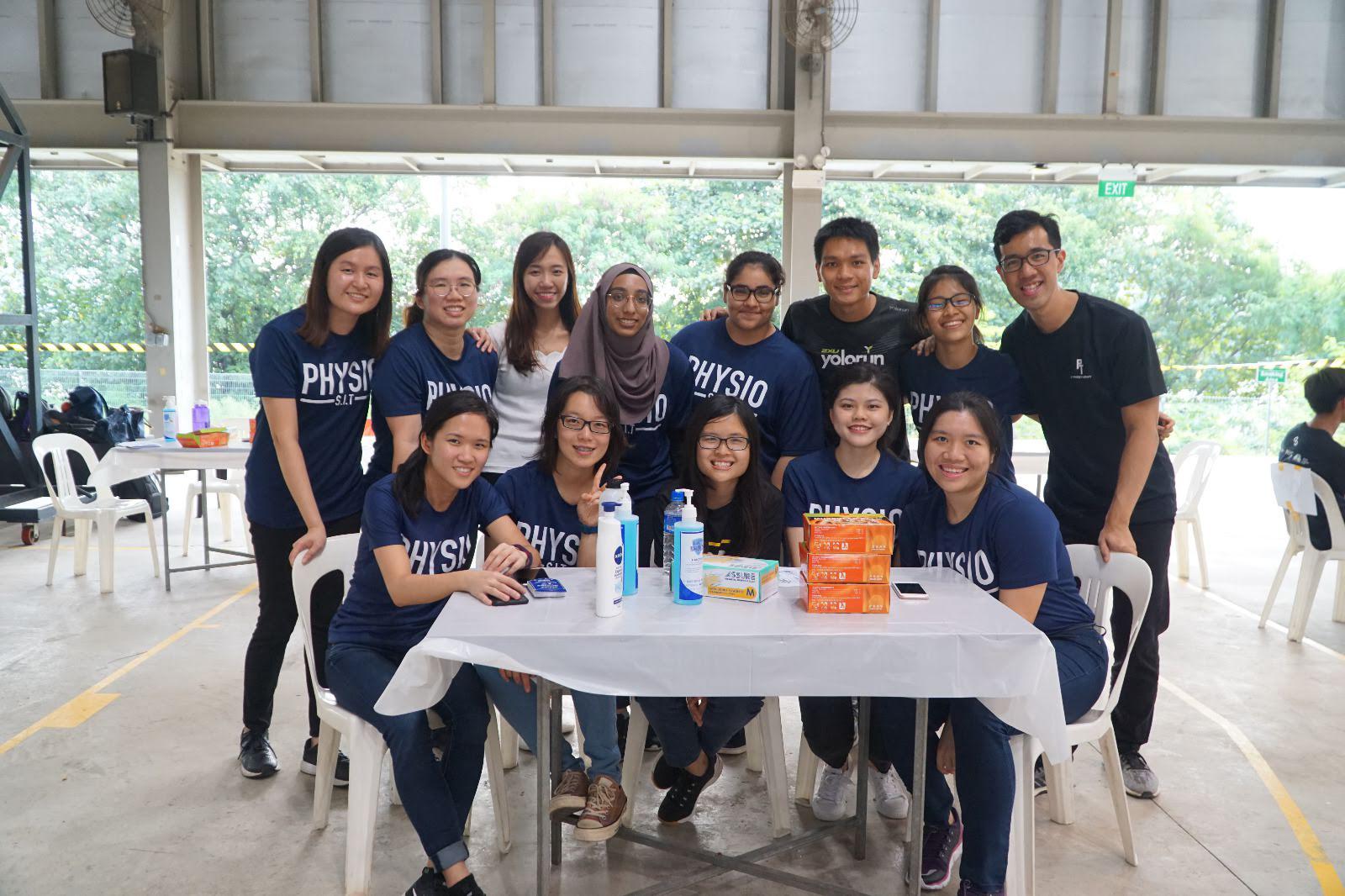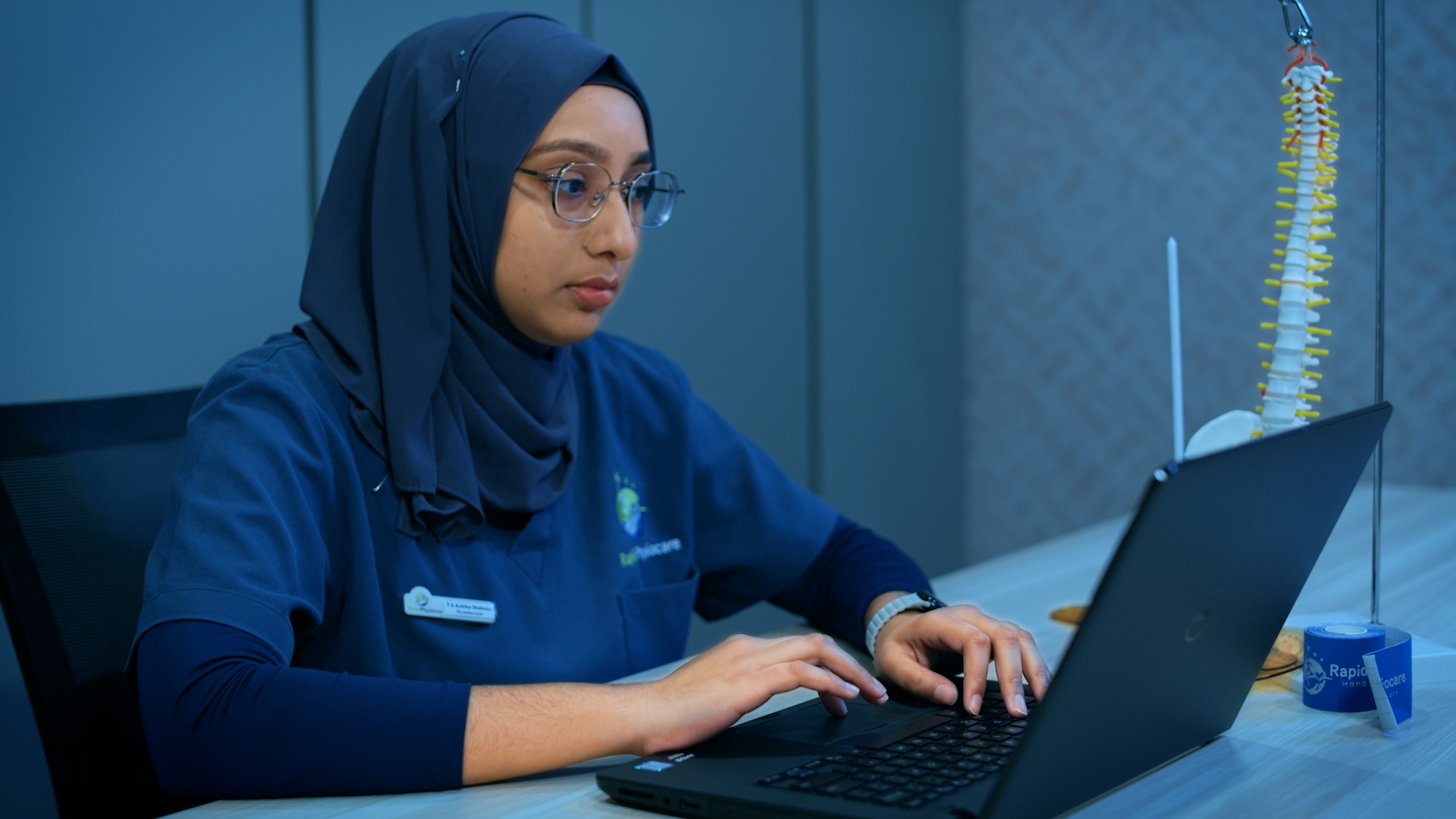![[FA] SIT One SITizen Alumni Initiative_Web banner_1244px x 688px.jpg](/sites/default/files/2024-12/%5BFA%5D%20%20SIT%20One%20SITizen%20Alumni%20Initiative_Web%20banner_1244px%20x%20688px.jpg)
Empowering Women and Patients Through Physiotherapy
A childhood encounter with physiotherapy sparked Ms Ashika Shahnaz’s dream of helping others heal and making a difference.

From a young age, Ms Ashika Shahnaz knew she wanted to be a physiotherapist. This passion sparked at age 12, when a routine school health screening revealed she had mild scoliosis, which caused occasional back pain.
“It was scary when doctors said I might need surgery. Thankfully, a doctor suggested trying physiotherapy first. After a few sessions, my pain disappeared. It was amazing,” she recalls.
That experience intrigued her and left a lasting impression. The idea that non-invasive treatments like hydrotherapy and stretching exercises could heal and empower patients, fascinated her and planted the seed for a future career.
Years later, she fulfilled that dream, graduating in 2021 with Honours from the joint Bachelor of Science in Physiotherapy programme offered by SIT and Trinity College Dublin. Today, she is a licensed physiotherapist specialising in musculoskeletal physiotherapy at Rapid Physiocare Group, where she guides patients through personalised rehabilitation programmes to aid recovery and prevent injury.
A Scholarship That Made the Difference
Her academic journey was shaped not only by determination but also by the generosity of others. In her first year at SIT, she received a bond-free scholarship from the Rotary Club of Bugis Junction (RCBJ), which eased her financial worries and allowed her to focus fully on her studies.
“I told my parents I wanted to be responsible for my education, as they also had to care for my three younger siblings,” says Ms Ashika, the eldest of four. Determined to lighten their load, she became the first in her family to attend and graduate from university – a milestone that brought pride to her household. Her father runs a travel agency specialising in Islamic pilgrimage services, while her mother, a retired preschool teacher, spent years nurturing young minds.
Beyond scholarship, RCBJ offered a sense of community. “They invited me to annual Club meetings where they connect with current and past award recipients. They offered career advice, checked in on our progress and provided encouragement. That support system really helped in the early stages of my career and gave me confidence,” she reflects.
In her second year, she chose to self-fund her studies, believing that others might need the help more. By her third year, she secured a new scholarship from a community hospital, which covered her final two years and included a guaranteed post-graduation role as a physiotherapist.
Turning Gatherings into Moments of Care
As a physiotherapist, she enjoys using family gatherings as opportunities to share simple tips and guidance on managing aches and pains. It’s a meaningful way for her to support those closest to her.
Beyond her immediate family, one voice of encouragement stood out – her granduncle, a surgeon. He assured her that physiotherapy plays a crucial role in healthcare and encouraged her to pursue it, confident she would excel. “His belief in me stays in my heart,” she recalls.
His words proved prescient. With Singapore’s ageing population, the Ministry of Health has called for more allied health professionals. SIT has responded with a S$30 million initiative to enhance allied health education, research and infrastructure – including a Community Health and Therapy Centre.
From Student to Confident Allied Health Professional
Ms Ashika credits SIT with equipping her well for clinical life. Through overseas exposure programmes with Srinakharinwirot University in Bangkok, Thailand, and Trinity College in Dublin, Ireland, she visited convalescent and acute hospitals, gaining insights into diverse rehabilitation approaches and services.
Volunteer work also shaped her development. At health screening events, she and fellow SIT Physiotherapy students assisted migrant workers with musculoskeletal conditions, offering advice and recommended exercises to manage their pain.

Ms Ashika (fourth from left, second row) volunteering with her classmates at an event for migrant workers.
“We need exposure to varied cases. The more you take on, the more confident you'll be, and the more empowered you’ll feel,” says Ms Ashika who has accumulated four years of professional experience, including internships and clinical placements. She now sees eight to 10 patients daily, treating a wide range of conditions, from ankle sprains to post-stroke rehabilitation.
She admits there are challenges, like language and cultural barriers – but also rewarding and sometimes amusing moments.
“During my two-year stint at the community hospital, I often had to coax my elderly patients to do rehab. Some would pretend to sleep when they saw me coming,” she chuckles.
“More recently, I’ve had patients tell me they didn’t think physiotherapy would work, but after a few sessions, they saw the improvement. Some even bring me cakes or ‘kueh’ when they complete therapy. It’s heartwarming to know I've been part of their healing journey,” she shares.
Helping Women Heal
Ms Ashika is especially passionate about advancing physiotherapy in women’s health — an area she says is fairly nascent in Singapore. She is training to support women through prenatal and postpartum recovery, pelvic floor issues and incontinence.
“Many women don’t even know physiotherapy can help with these conditions,” she explains. “As a young mother myself, I understand the changes and uncertainties that come with pregnancy and childbirth. I want to empower women in those moments.”
Her workplace has been instrumental in nurturing that interest, providing both training and mentorship.

Don’t Be Afraid to Explore
To those studying physiotherapy or considering the field, Ms Ashika offers this advice: “Don't be afraid to explore. Whether you’re in school or just starting out, don’t hesitate to talk to your peers, lecturers, or colleagues when you are unsure. That’s how you grow.”














